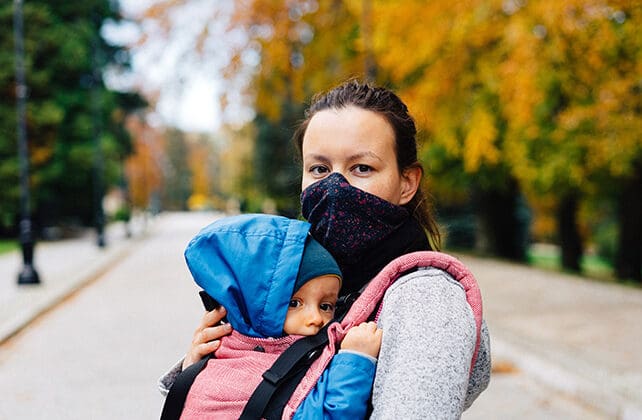
(RNS) Religion was an important topic of conversation between mothers and their children during the pandemic, according to an annual “State of Motherhood” survey from Motherly, a website focused on millennial motherhood.
The report, released earlier this month, showed that some 31% of mothers said they had discussed religious issues with their children last year. This trailed only gender equality (33%) and racism (46%) as the most discussed issue between children and their parents in 2020.
“Every family has different religious beliefs and differing ideas about how to pass those concepts along to their kids,” said Liz Tenety, a co-founder of Motherly.
Some 23% of millennial mothers said they wished there was information available that reflected their “values, religion or spirituality.” The highest topics of interest were balancing family with career (49%) and the stages of life (43%).
“Millennials are in a record number of interfaith marriages, including those with varying religiosity between partners. In a world where faith is often expressed more personally than shared communally, parents have an opportunity to share their unique beliefs and practices with their kids or to evolve the religious beliefs and traditions in which they were raised,” Tenety said.
Data from the report showed that 12% of mothers surveyed said they had discussed Islamophobia or antisemitism or both with their kids. While not a huge share, that percentage represents a greater swath of people than the combined Muslim and Jewish population of the United States, suggesting the issue is of broad concern for mothers.
Tenety stressed that family conversations about faith stretch over a lifetime, meaning that parents don’t need to be afraid to answer their children’s questions or to admit they don’t have all the answers.
“Parents can talk openly about what they believe and why it matters, and model those practices and rituals with their kids. Kids ask big questions, so don’t be afraid to share your beliefs with your children, or even to say the often-true words, ‘I don’t know the answer, but I love that you ask questions like that,'” she said.
There were other findings in the survey that possibly related to the pandemic: Nearly all mothers (93% ) described being burned out in providing care for their children, a sentiment that may explain why mothers considered paid family leave (73%) and affordable child care (67%) as the most important public policy issues related to motherhood.
The State of Motherhood survey is now in its fourth year. This year’s edition included feedback from 11,000 women who are among the site’s 30 million-plus users.
In March a Gallup poll cast new light on the role of religion in America. That poll found that for the first time in eight decades — since polling on the topic began — less than 50% of Americans belonged to a place of worship.
Edge Research, which ran the survey for Motherly, weighted the findings of Motherly’s online poll by crossing the date with a demographic representation of American mothers based on the U.S. census. From an initial 11,000 mothers who responded to the Motherly survey, the final dataset includes the data from 5,809 moms aged 25 to 40.
